Redditor Asks If Calling Animal Control About Neighbor's Freezing Dog Without Consulting Neighbor First Is Justifiable
When it's extremely cold outside, like 0°F with even colder winds, figuring out what to do about someone else's dog left outside can be tricky. This story is about OP, who saw their neighbor's dog, a mix of shepherd and lab, always outside, never playing or going inside, especially when it was freezing.
The dog didn't have any place to hide from the wind or keep warm. OP, who witnessed this, was worried but didn't want to talk directly to the dog's owner due to rumors that the owner wasn't the easiest person to deal with.
So, instead of talking to the neighbor, OP called animal control to help the dog, hoping they wouldn't have to get involved directly. Animal control came, checked things out, and decided to take the dog away, leaving a note for the owner.
The next day, the owner figured out who called and was upset, saying the person should have just talked to him first and even asked for money to cover the fines and fees.
OP, who called animal control, thought that if there were no problem, the dog wouldn't have been taken away. He wondered if he did the right thing by not talking to the neighbor first but decided not to pay the money the neighbor was asking for.
He was just trying to avoid a big fight and believed that helping the dog was the most important thing.
OP called animal control over the weekend because his neighbor left their dog outside in freezing weather without any shelter.
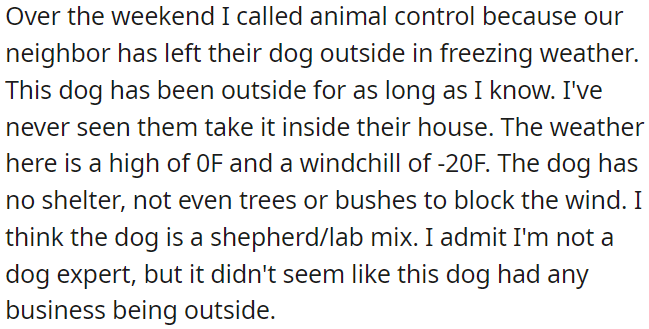
OP avoided talking to his neighbor because he heard he had conflicts with others in the neighborhood, and OP didn't want to deal with it.
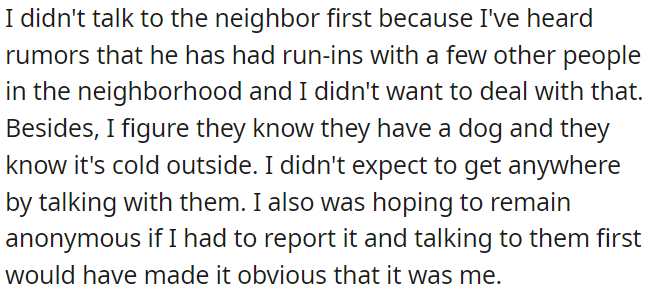
While the neighbor was away, animal control took their dog, leaving paperwork.
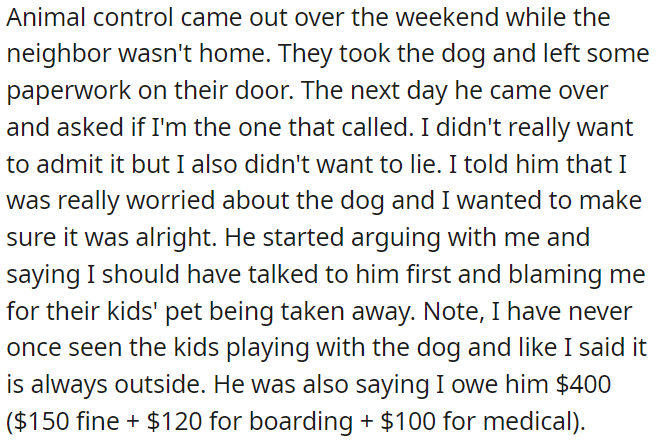
Ethical Dilemmas in Pet Care
This situation raises important ethical questions regarding the treatment of animals. Research from the Journal of Animal Ethics emphasizes the moral responsibility humans have towards animals, particularly in ensuring their welfare.
When faced with a neighbor's neglect of a pet, individuals often grapple with the decision to intervene, highlighting the complexities of ethical decision-making in pet care.
Now OP is wondering if he should have talked to them first.
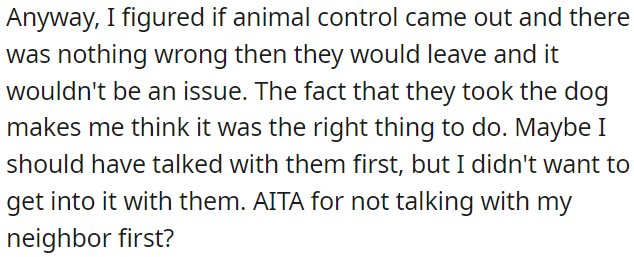
The dog's current condition is uncertain, and whether the neighbor will get it back remains unknown.
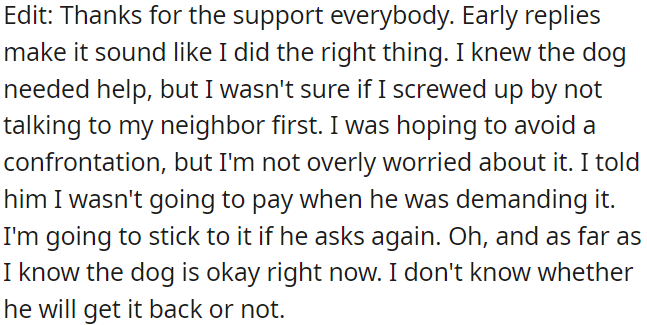
OP can tell him that his kids should learn to keep pets safe.
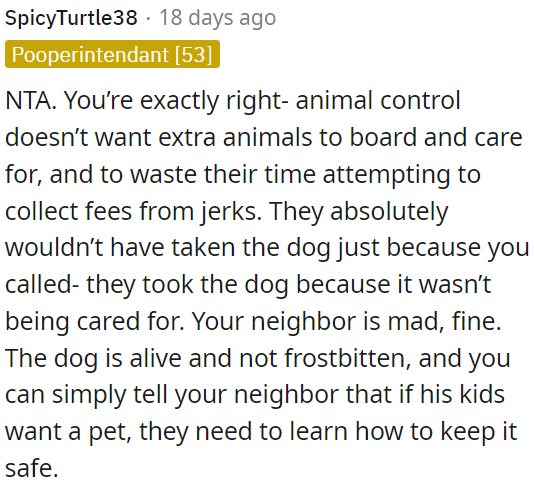
Social psychologists note that the bystander effect can influence decision-making in situations involving animal welfare. According to studies, individuals may hesitate to intervene when they believe others are witnessing the situation, leading to inaction.
This phenomenon illustrates the importance of individual responsibility when it comes to advocating for an animal's well-being.
OP did the right thing for the puppy.
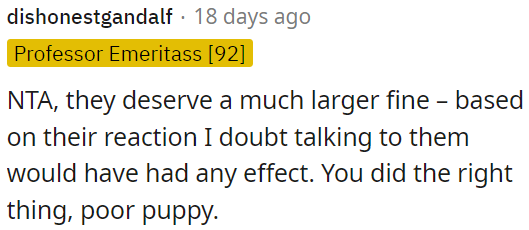
OP should always support the innocent and not ignore wrongdoing.
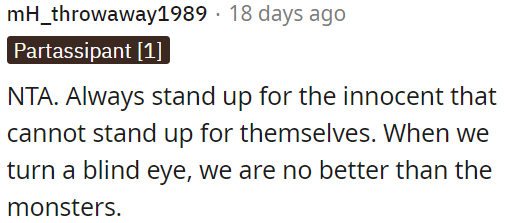
OP doesn't owe him any money because he mistreated the dog.
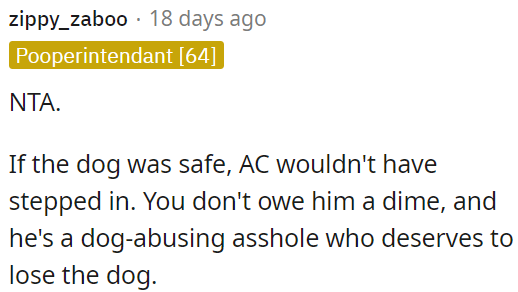
Understanding the Importance of Animal Welfare
The welfare of animals is a significant concern in many communities. Research highlights that neglecting a pet can have serious physical and psychological consequences for the animal, as well as affecting community dynamics.
In this case, the neighbor's dog may suffer not only from physical discomfort but also from emotional distress due to a lack of proper care.
The owner's negligence is concerning.
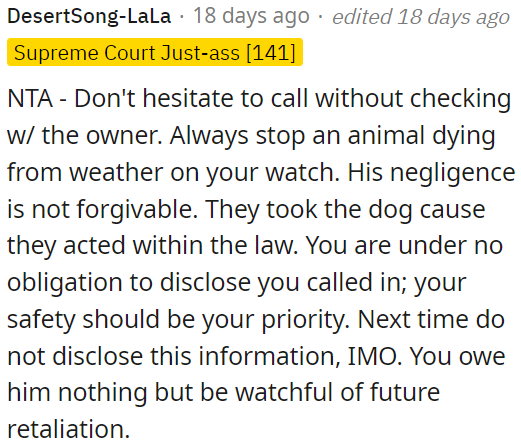
If the neighbors want consideration, they should treat their dogs well.
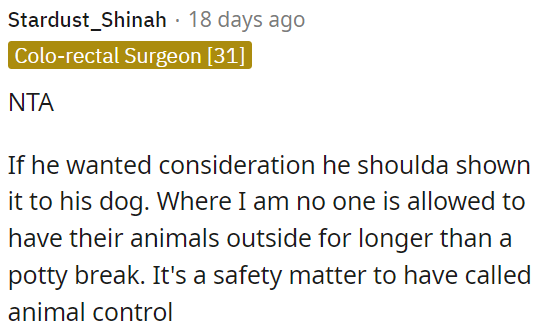
Animal control can only take dogs from backyards if there's evidence of neglect or abuse, so OP did the right thing by reporting it.
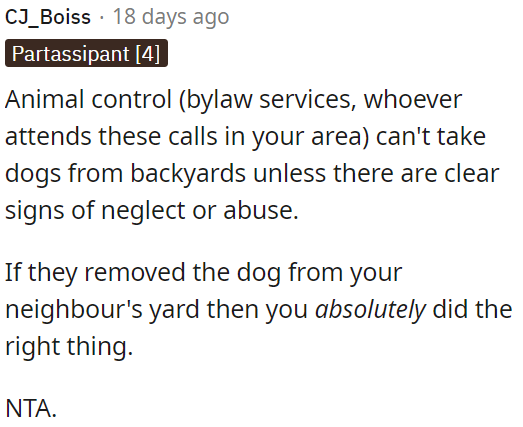
To navigate this ethical dilemma, individuals should weigh the potential consequences of their actions. Research suggests that seeking guidance from animal welfare organizations can provide clarity and support in addressing such situations.
Additionally, open communication with the neighbor about concerns regarding their pet may lead to a more constructive outcome.
OP shouldn't feel guilty.
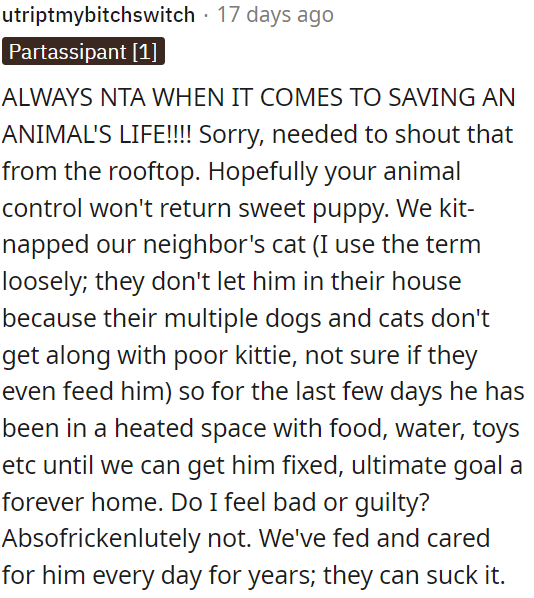
OP did the right thing by calling animal control when he saw his neighbor's dog suffering outside in the cold. The neighbor wasn't taking good care of the dog, which is unacceptable.
If the neighbor wants understanding from others, they should treat their pets better. Animal control only takes pets away if there's proof of mistreatment, so OP's decision to report it was justified.
OP shouldn't feel bad about it because he was trying to help the dog. OP can also suggest to the neighbor that they should teach their kids how to take good care of pets.
It's important to ensure animals are safe and comfortable.
The Role of Community in Animal Welfare
Community involvement is crucial in ensuring the welfare of pets. Studies from the University of Washington indicate that communities with active animal welfare initiatives tend to have better outcomes for neglected pets.
By fostering a culture of care and responsibility towards animals, individuals can contribute positively to their neighborhoods and improve the lives of animals in need.
Psychological Analysis
This situation highlights the moral dilemmas individuals face when witnessing animal neglect. The decision to intervene can be challenging, but advocating for the welfare of pets is a critical responsibility. Open communication with the neighbor, combined with seeking guidance from animal welfare organizations, can help navigate this delicate situation.
Analysis generated by AI
Analysis & Alternative Approaches
This scenario illustrates the ethical complexities surrounding animal welfare and the importance of individual responsibility in advocating for neglected pets.
Research supports the idea that community engagement and open communication are vital for promoting the well-being of animals.



